The Enlightenment
Patriot leaders were influenced by political ideas of the Enlightenment or Age of Reason, a late 17th century and 18th century movement that emphasized science and reason as key to improving society. Political thinking was evolving in Europe as the Enlightenment thinkers published their work. The Founding Fathers had read the writings of these philosophers and had lived under a governmental system that was the product of centuries of evolving government in England. The United States government created in 1787 is a product of all these influences.
John Locke
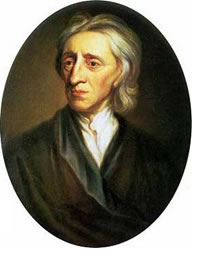
John Locke (1632-1704).
John Locke is thought to be the most influential of the Enlightenment thinkers. In his famous essay, The Second Treatise on Government, Locke suggested the theory of natural rights, which stated that citizens have the right to revolt and to replace their government if it does not protect their natural rights. American patriot leaders used Locke's ideas as the basis of their arguments to cut colonial ties with Great Britain and declare independence.
Thomas Hobbes
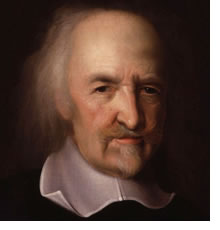
Thomas Hobbes (1588-1679).
Thomas Hobbes was an English political philosopher that believed mankind was naturally wicked and selfish. He believed nations, like people, were selfishly motivated to gain power and wealth. Therefore governments were created to protect people from themselves. This idea became known as the social contract theory.
Thomas Hobbes' Social Contract Theory
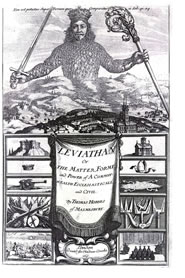
Frontispiece of Thomas Hobbes' Leviathan by Abraham Bosse (1651).
Thomas Hobbes was one of the first philosophers to theorize on the social contract. The theory suggests that man without government is in a "state of nature" where the individual is at risk of losing life, liberty, and property. Without a government to protect the individual, life is “nasty, brutal, and short.” With a social contract the people surrender power to the state for protection from others who would do harm. Read Britannica: Social contract to learn more.
Montesquieu
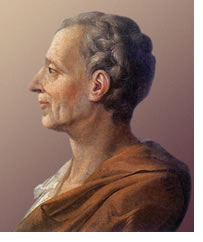
Charles de Montesquieu (1689-1755).
Charles de Montesquieu declared that power should not be concentrated in the hands of any one individual and that a government elected by the people was best. He recommended separating power among three branches of government: executive, legislative, and judicial branches. Montesquieu's ideas about the separation of powers became the basis for the Constitution.
Jean-Jacques Rousseau
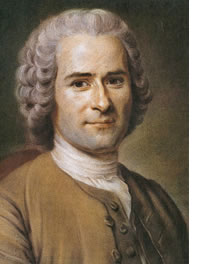
Jean-Jacques Rousseau (1712-1778).
Jean-Jacques Rousseau stated that society should be ruled by the "general will" of the people. In other words, he believed in popular sovereignty – the right of the people to govern themselves. His work was dominated by the desire to find a way to preserve human freedom. He believed humans are increasingly dependent on others for the satisfaction of their needs and saw this as a threat to freedom. He disagreed with Hobbes on the view that handing over the right to rule to someone else was beneficial. He saw this as a form of slavery.
The Great Awakening
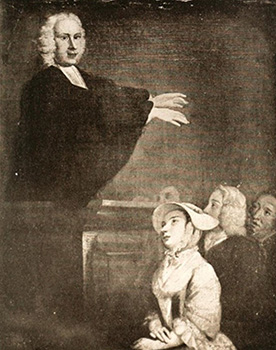
George Whitefield preaching a sermon.
As new political ideas emerged during the Enlightenment, religious renewal began to take place at nearly the same time during the Great Awakening. The Great Awakening was a revival of religious feelings that occurred in the colonies in the early to mid-1700s. It was a result of many ministers leading revivals designed to renew colonists who had fallen away from the faith of their Puritan ancestors.
Leaders of the Great Awakening
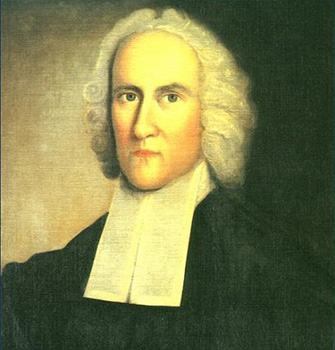
Jonathon Edwards.
Jonathan Edwards was the minister whose preaching in the 1730s caused the great explosion of religious feelings resulting in the Great Awakening. Sinners in the Hands of an Angry God is perhaps his best-known sermon.
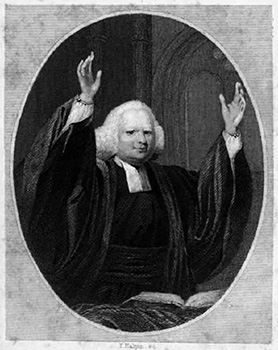
George Whitefield.
George Whitefield was an itinerant, or traveling, preacher, who preached revivals during the Great Awakening. These revivals led to greater support and more tolerance for new denominational choices such as Baptists and Methodists.
The Great Awakening
The Great Awakening energized people to speak for themselves and rely less on the traditional authority of ministers and books. The Great Awakening also had long-term social and political effects like the revolutionary idea of equality which led to the American Revolution.
Read Great Awakening to learn more.